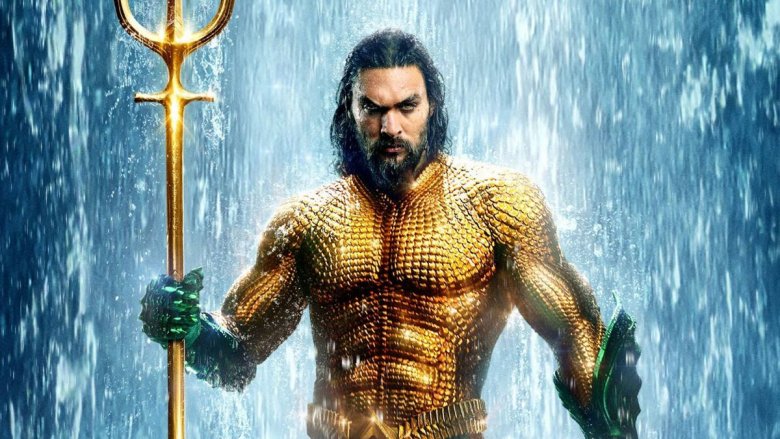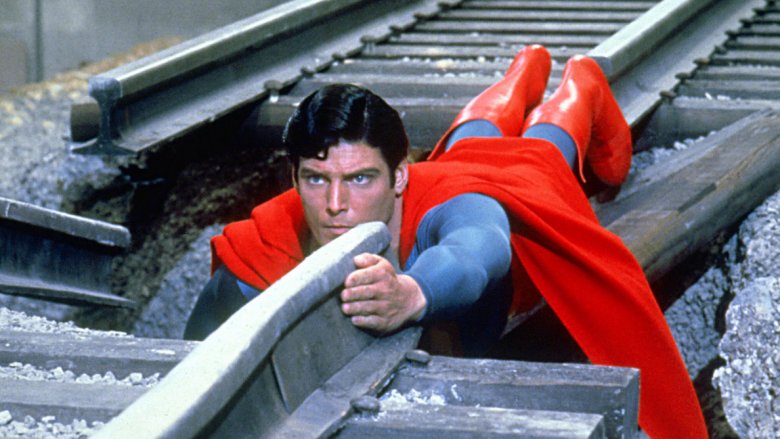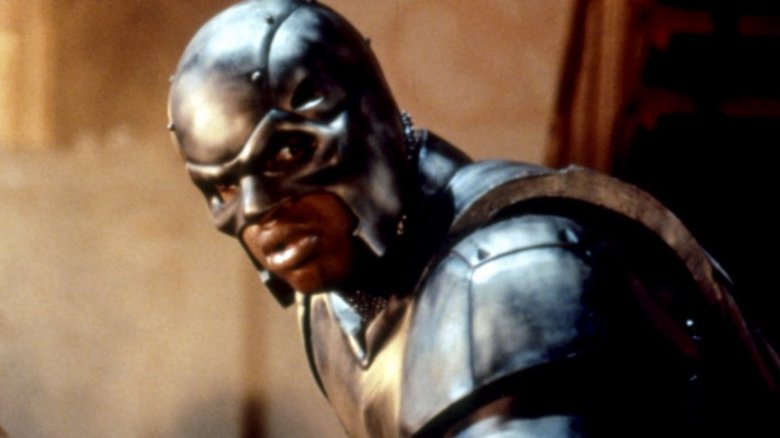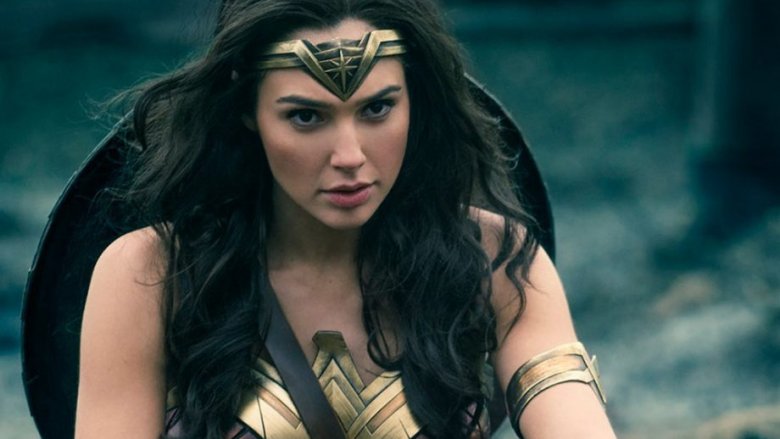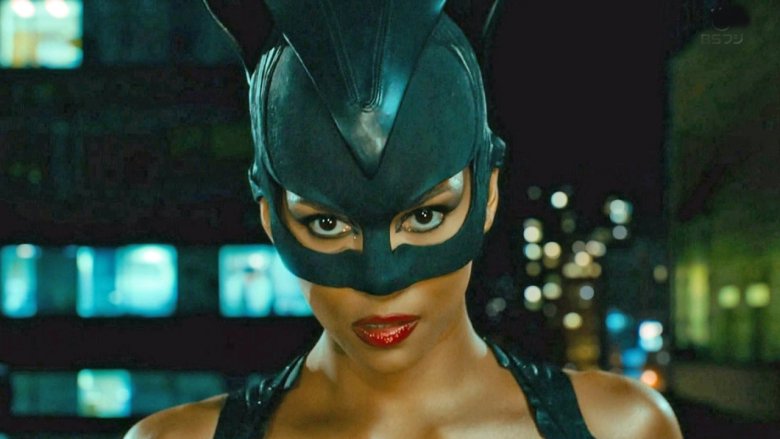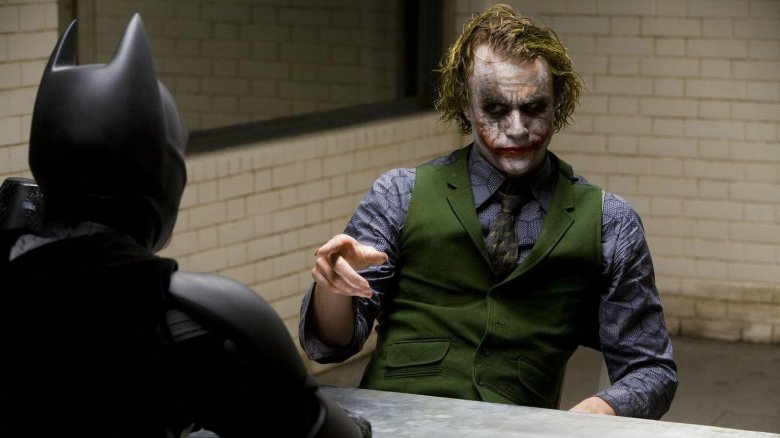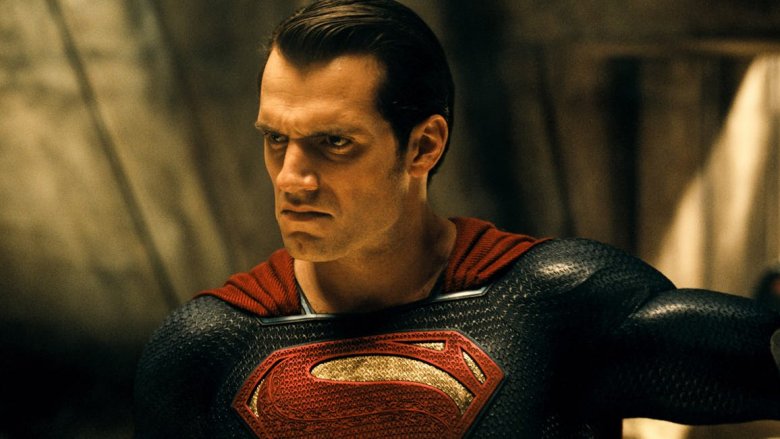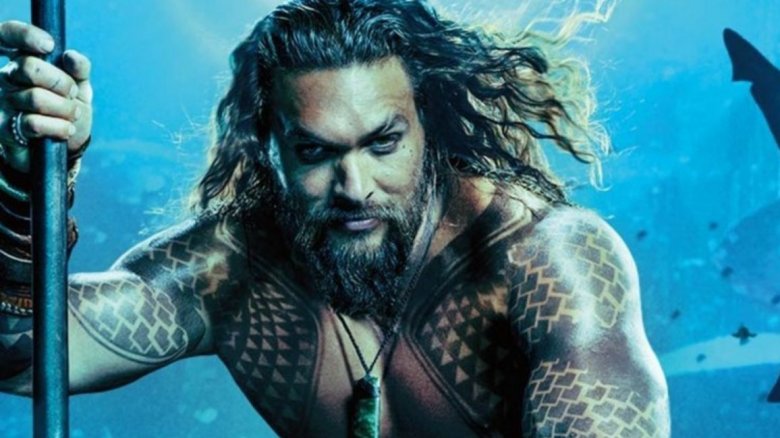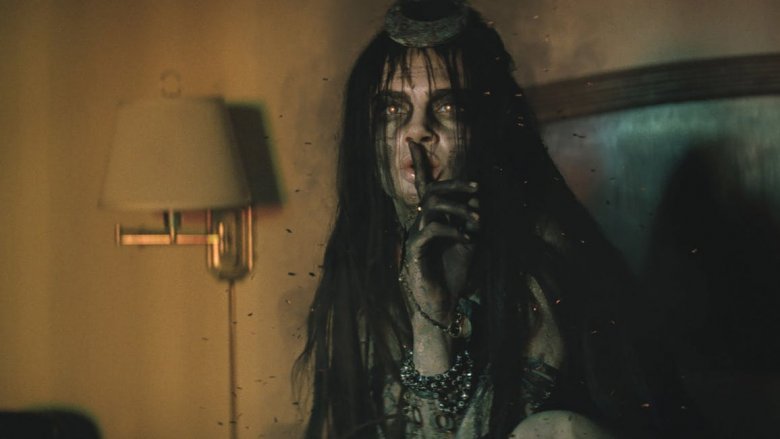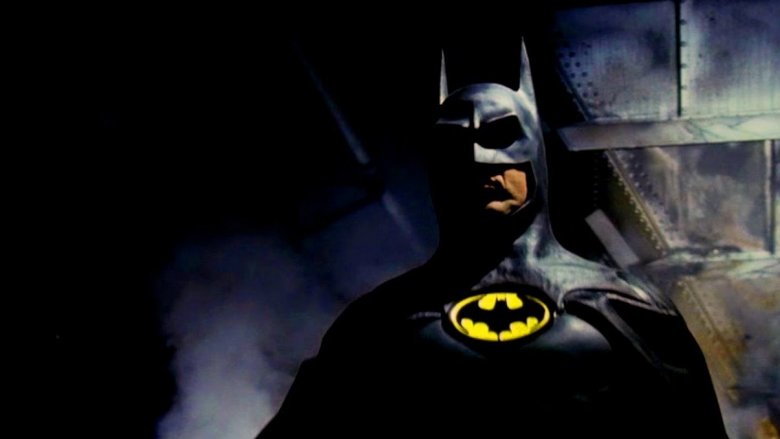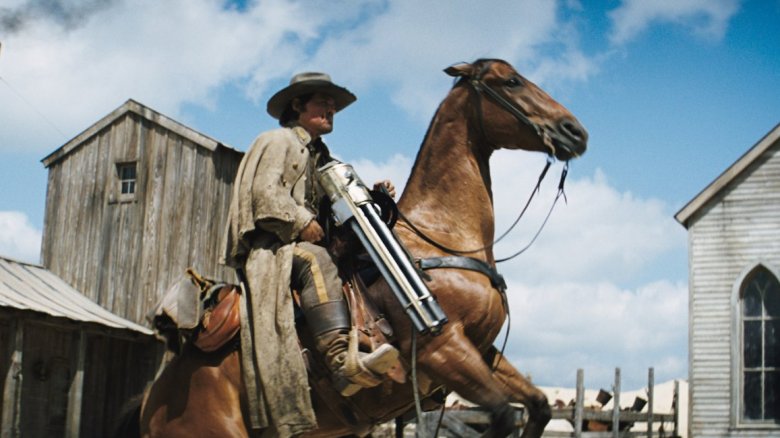5 Best And 5 Worst DC Superhero Movies
Between strong box office numbers, an unrelenting torrent of releases, and a slow invasion of prestigious award shows, it's more than safe to say that superhero films are now firmly part of the greater cinematic zeitgeist. Over the past decade, Marvel Studios has undeniably risen to become king of the genre, producing more films than any other player, while receiving arguably the best reception from both audiences and critics alike. But as Marvel has been steadily cruising the proverbial highway for the last decade, their only major competitor, DC Films, has had a much bumpier ride in recent years, producing some major successes but mostly major failures (perhaps there's a problem with their suspension).
The DC jalopy might be long overdue for some servicing, but it's important to remember that it's also been on the road for much longer, introducing superheroes to the silver screen in 1943 through serialized shorts and continually producing feature films from 1966 forward. There's an argument to be made that Marvel's landmark achievements wouldn't be possible without DC's pioneering efforts over the better part of a century. And honestly, DC has made quite a few superhero classics, along with its epic bombs. And today, we're taking a look at both the greatest films DC has to offer and the ones that the studio would rather everyone forget about. From men of steel to steel men, here are the five best and five worst DC movies.
Best: Superman
DC's first foray into feature-length superhero films came in 1966 with Batman, a 20th Century Fox production made in continuity to its groovy TV counterpart. About 12 years later, after five years of haphazard pre-production, Superman joined his nocturnal chum and became the second superhero to get a major motion picture. And with award-winning special effects, an excellent cast — Christopher Reeve, Margot Kidder and Valerie Perrine, alongside Oscar winners Gene Hackman and Marlon Brando (the latter giving one of his most thoughtful performances) — and a script that deftly captures the spirit of the comics, Superman is considered a classic of both superhero films and cinema as a whole.
Unlike Batman, which is essentially a hammed-up spy film, Superman created a new storytelling architecture that's been used in nearly every hero franchise since. How so? Well, by following the titular character's alter-ego, Clark Kent, from Kryptonian baby and awkward Earth-teen to globally known paragon of good, the film effectively establishes the origin story structure. More importantly, Superman shows the burdens of its hero as both a protector and outsider, one of the genre's most mined resources. The film does have a few telltale signs of its age, such as disaster sequences that could've been produced by Godzilla's Toho Studios, some not-quite-benign romance dynamics, and a hokey adherence to Boy Scout Americanism. But while quaint in comparison to present-day contemporaries, Superman is still thoroughly engaging, and hands down the best Superman adaptation, with only its 1980 and 2006 sequels leaping anywhere as high.
Worst: Steel
Outside of his legendary basketball career, Shaquille O'Neal (Shaq) has been a genie, an Icy Hot spokesman, a Lego minifigure, a cat-meme, and in 1997, he was sort-of the first big screen Iron Man. Steel follows the story of John Henry Irons (O'neal), a brilliant weapons engineer who disavows his inventions after one of them permanently paralyzes his partner and close friend, Susan Sparks (Annabeth Gish). However, when John Henry returns home to find that counterfeit copies of his weapons have made it into the hands of a neighborhood gang, endangering his family and community, he and Sparks set about to design a suit of armor that will transform him into a home-built incarnation of Superman, by way of rail worker folk-legend John Henry. And yeah, the suit bears a close resemblance to Tony Stark's Iron Man prototype from the Marvel Cinematic Universe.
Fans and critics alike often list Steel as one of DC's worst films due to predictability, underwhelming action, and Shaq's limited acting ability, but it's not all bad. For one, Steel has the distinction of being the first African-American superhero film from DC or Marvel, beating out Blade by a year. But while Steel is refreshingly free of contrived interpersonal drama, instead leaning into larger conflicts around class-exploitation and military industrialism, it never fully commits to being a superhero movie, opting instead for something closer to whatever it is Hallmark is going for. Steel's earnestness and sweetness may be endearing to some, but the identity crisis it creates is decidedly not.
Best: Wonder Woman
In 1974, between Batman and Superman, DC and the ABC television network created a direct-to-television Wonder Woman film, meant to fit into the continuity of the 1960s Batman series and pilot a series of its own. The film was forgettably mediocre and thinly related to the comic series. Thankfully, ABC scrapped the concept, and together with Warner Brothers, developed the beloved 1975 series starring Lynda Carter. A long 42 years later, the world got a legitimate Wonder Woman film when the DC Extended Universe finally made something watchable, and female comic book fans finally got to see a heroine lead her own story.
Wonder Woman has everything audiences have come to expect from a contemporary high-budget action film. There are, of course, the big name actors, with Gal Gadot of Fast and Furious fame playing the titular character, alongside love interest Chris Pine. Plus, there's antagonist David Thewlis in an odd but successful casting as Ares. On top of the stars, Wonder Woman delivers well-executed effects and fight choreography, and most importantly, a story with real emotional complexity. Wonder Woman is easily one of the best superhero films of its decade and of all time, seamlessly blending real human drama into a fantastical world of gods and monsters (doing justice to the ancient Greek stories on which the character and genre are based).
Worst: Catwoman
The new generation of superhero franchises have been aggravatingly slow at bringing diversity into their respective pantheons. Marvel's Black Widow has been a major character of the MCU since 2010's Iron Man 2, but it wasn't until 2018's Ant-Man and the Wasp and 2019's Captain Marvel that Marvel women got to headline their own films. As for DC, they introduced Wonder Woman to the DCEU in 2017, but to its credit, the studio had tried at least once before in 2004, with the only female super villain film to date: Catwoman.
Development for Catwoman began way back in 1993. What was originally conceived of as a standalone film for Tim Burton's iconic version of the character, portrayed by Michelle Pfeiffer in Batman Returns, quickly devolved into a production nightmare. After years of stalling and numerous cast and crew changes, Halle Berry was cast in a rush schedule replacement for the canned 2004 Batman vs. Superman. If only they would've hit the breaks.
Catwoman is a bonafide trainwreck with very few redeeming qualities. Even Berry, who would become the first African-American woman to win an Oscar for Best Actress only three years earlier, couldn't save the Razzie-winning screenplay. Berry herself received a Golden Raspberry for her performance. While Berry's career didn't take long to recover, it's been speculated that Catwoman's poor reception contributed to a sharp decrease in female action roles as a whole for more than a decade, an utter paw-slap to the face of one of the comic book world's strongest female characters.
Best: The Dark Knight
Even though 2005's Batman Begins feels a little stylistically out of place amidst the other films in its trilogy, any of the three Dark Knight movies could've easily occupied this place on the list. The series, directed by Christopher Nolan and starring Christian Bale, produced not only three of the best DC movies, Batman movies, superhero movies, or action movies ever, but three genuine cinematic masterpieces. The Dark Knight stands out from the others simply because it features one of cinema's best villains: Heath Ledger's Joker.
The Joker has long been one of the most beloved fantasy villains, and the character has enjoyed a mostly untainted existence on the screen, with even Jared Leto's rendition in Suicide Squad receiving props for novelty, despite fairly lukewarm reception overall. Like Leto, Ledger brought us a completely fresh take on the character, completely unlike Jack Nicholson's mobster rendition in 1989 and Mark Hamill's "Clown Prince of Crime" that the Star Wars star has been voicing since 1992. Ledger's performance was a phenomenal balance of calculating criminal and chaotic evil incarnate which would ultimately do far more damage to Bruce Wayne than a Bane-inflicted spinal injury ever could. Ledger's death in 2008, six months before The Dark Knight's release, devastated fans and obliterated the possibility of a planned reprisal in an yet-written future sequel. Were Ledger still alive to continue his most iconic role, it's possible the Dark Knight trilogy would've been even better.
Worst: Man of Steel
Superman came back to the big screen in 2006 with Superman Returns. Framed as a direct sequel to 1980s Superman II, it ignores the events of Superman III and Superman IV: The Quest for Peace. The film gave audiences the modern Superman film they'd wanted for more than a decade, but despite strong audience and critical reception, Warner canceled plans for another sequel due to lower than expected box office returns. The cancelation saw a Batman vs. Superman film get shelved, as well as several more years of development purgatory for the character. When Man of Steel came out in 2013, it made Warner the hard numbers it was after, becoming one of the most profitable reboots worldwide. In fact, at the time, it was second only to Sony's The Amazing Spider-Man in the reboot department. Reception, however, was tepid at best.
Tepid is admittedly a pretty mild condemnation, and in fact, it isn't entirely the film itself that places it here as one of DC's worst films. In addition to DC's unfortunate attachment to Henry Cavill (who's made a career out of being just okay), the film is pretty devoid of creative or emotional depth. However, what truly makes Man of Steel one of DC's worst movies is that it serves as a sharp end to a promising new era of DC films created by Superman Returns and the Nolan Dark Knight trilogy, shifting instead into the confusing, apocalyptic hell-verse of Batman v. Superman: Dawn of Justice, Justice League, and Suicide Squad.
Best: Aquaman
Aquaman has been a mainstay of DC since 1941. But when the character made his television debut in 1967's The Superman/Aquaman Hour of Adventure, he became forever cemented in the public imagination as an Aryan, aquatic Boy Scout who's only distinguishing power was the ability to talk to fish. While a contemporary film adaptation of this Aquaman would've certainly been boat-loads of ridiculous fun and a welcome contrast to his edgelord colleagues, Zack Snyder, de facto creative lead of the DCEU, decided to go in a very different direction. Jason Momoa of Game of Thrones fame took up the trident (and jeans?) in the Snyder-directed Justice League, but the underdeveloped character was quickly lost in the chaos of Snyder's CGI smoothie.
Without much to go on, expectations for Momoa's 2018 stand-alone feature helmed by Saw co-creator, James Wan, were low. Fortunately, Wan proved them all wrong. How so? Well, Aquaman taps into the humanity beneath Snyder's renegade vision for the character, and what works about the film is that it's paradoxically both more over-the-top and more real. Whereas Snyder's Batman and Superman both feel like broody prima donnas, Momoa brings just enough weight to his character to make him three-dimensional and sympathetic (which really shouldn't be too much to ask for), and while the action sequences of Synder's films are immediately tired and predictable, Wan's background in horror injects Aquaman with a refreshing degree of tension and terror. Between Aquaman, Wonderwoman and 2019's Shazam!, justice may dawn in the DCEU yet.
Worst: Suicide Squad
Suicide Squad is a perfect example of how even the most outstanding of casts can't make a poorly written movie work. In the case of the DCEU's super-villain counterpart to Justice League, we're talking some seriously gifted actors like Viola Davis, Margot Robbie, Jared Leto (who might also be Hollywood's worst co-star), and yeah, Will Smith ... and none of them could save the film from itself. Like other DCEU films released around the same time period, "a mess" is really the best way to summarize David Ayers' adaptation of one of DC's first team-up groups.
Netflix junkies might recognize Ayers as the creative force behind the similarly over-the-top and unsuccessful fantasy cop thriller, Bright, also starring Will Smith. But even more so than Bright, Suicide Squad suffers from a tonal mishmash that never really solidifies into anything cohesive. While parts of the movie are light and fun, others are inexplicably heavy. The shifts in mood are sometimes so stark that it feels as if the characters were pulled from completely different films. Whatever might've been saved by laudable performances from the central cast is vanquished by the film's flatly performed and thinly written villain, Enchantress, played by Cara Delevingne. The one possible silver lining to Suicide Squad, however faint, is that the film performed well enough to solidify a string of Robbie spin-off films, where she'll reprise the role of Harley Quinn.
Best: Batman
DC has been responsible for at least two films that have directly affected how comic book movies are produced. If Superman is considered the brand's first true success and game-changer, Tim Burton's 1989 Batman can easily be identified as the second most important DC movie ever made. Where Superman set up the architecture for the burgeoning genre, Batman was the first to fully embody it. After all, Burton's fleshed-out vision coats every nook and cranny of the film, and thanks to a big studio budget, the film's production values have more-or-less stood the test of time.
Outside of being a groundbreaking achievement to which all superhero films owe a great deal, Batman is just a great Batman story. Unlike its 1966 predecessor, the film taps into Batman's spooky and moody side, but unlike Nolan's trilogy, it maintains the look and feel of a comic book. In doing so, Burton is using a part of Batman's past that often gets lost in translation: his pulp-noir DNA.
Lest Burton get all the credit, it's important to note that none of it would work without the film's top-billed actors, Michael Keaton and Jack Nicholson. Nicholson's Joker would go on to become an archetype for future villains by showing just how unsettling comic baddies could be, while Keaton, aside from establishing Batman's hallmark growl, mirrors Nicholson by showing that vigilante justice can sometimes be just as terrifying. With such a great set of bones to work with, it's a shame that Zack Synder and the DCEU have yet to do anything meaningful with them.
Worst: Jonah Hex
Wild Wild West, The League of Extraordinary Gentlemen, Sky Captain and the World of Tomorrow — these films all have something in common. And no, we're not talking about a penchant for airships and monocles. We're talking about their Hindenburg-like critical reception. There really is no love for steampunk in cinema. Because it would be hard to claim this as just a series of unfortunate coincidences, the best explanation for why steampunk doesn't work in cinema is because it's basically all style over substance. And the same can definitely be said about Jonah Hex.
Jonah Hex is a fantasy Western, set in the years following the end of the American Civil War. It follows an ex-Confederate soldier turned gunslinger who can cheat death and communicate with the deceased. Like those other aforementioned steampunk flops, the film features a roster of strong talent, with Josh Brolin playing Hex, opposite John Malkovich and Michael Fassbender as villain and co-villain, all of whom deserve props for bringing some life to their two-dimensional roles. Supporting characters played by Megan Fox and Will Arnett don't fare as well, but the problem ultimately comes down to a shallow story built around an emotionally shallow core. For film fans content with gleaming, absurdist action-mayhem, Jonah Hex might satisfy a craving for dumb fun. However, most will see right through all that chrome-plated muscle and find a soul of cold lead.
